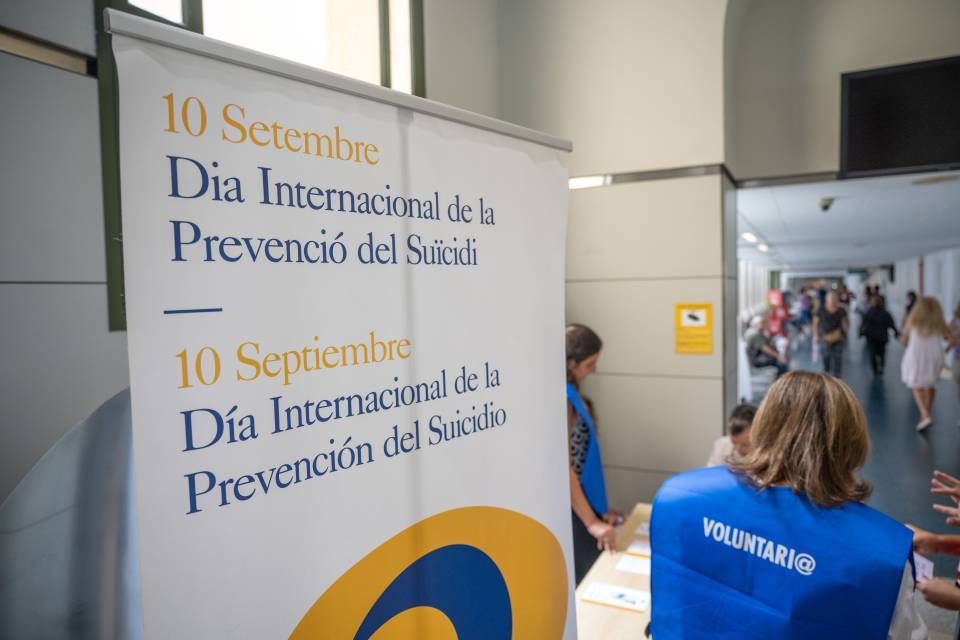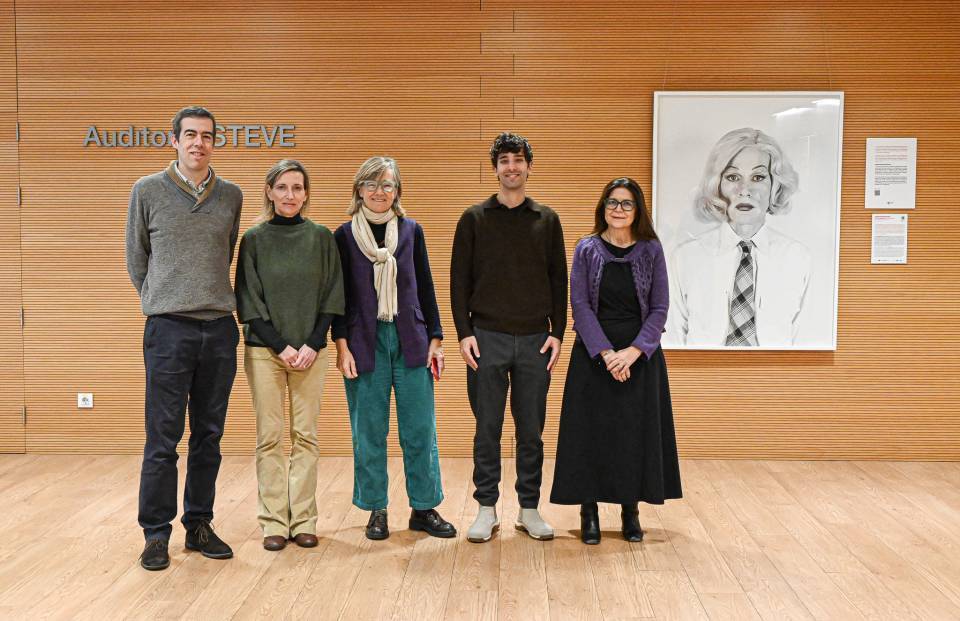Hospital Clínic Barcelona reaffirms its commitment to mental health and suicide prevention, promoting ongoing research in this area. El Clínic participates in different studies and clinical trials, in order to gain a detailed understanding of the causes that trigger this behaviour and to improve prevention programmes. In addition, to mark World Suicide Prevention Day, held on Tuesday 10 September, the Clínic is also joining the “Open your eyes. Come closer. Let’s talk” awareness-raising campaign,
Over 11 people die by suicide every day in Spain. It is the leading cause of death among young people aged 15 to 29, according to data from the Spanish National Statistics Institute (INE). In 2022, 4,227 people died by suicide in Spain, 5.6% more than in 2021, according to data from the INE. Thanks to the implementation of prevention programmes, in 2023, the number of deaths by suicide fell to 3,952 people. Nevertheless, it still remains a serious public health problem that needs to be addressed.
Knowing the risk factors that promote this behaviour or, in the event of the person not dying the occurrence of repeat attempts, is a crucial step towards carrying out prevention programmes. Moreover, studying the results obtained from these programmes in order to improve them is also essential, in order to prevent this problem. This is why the Clínic-IDIBAPS continues to support valuable research, as well as integrated care, at the Bipolar and Depressive Disorders Unit, for patients with risk factors.
This Unit is run by the Clínic Institute of Neurosciences with Dr. Ana Isabel Martínez as Head of Unit. It specializes in mood disorders such as bipolar disorder and depressive disorders, both recognized risk factors for developing suicidal behaviour. The Unit has a multidisciplinary team of psychiatry, psychology and nursing professionals, among others, who provide comprehensive care. It is a national referral centre, offering regular and ongoing care to approximately 1,000 patients a year, a quarter of whom are at risk of developing suicidal behaviour.
In addition, the Unit is a leader is research through the Bipolar and Depressive Disorders Research Group led by Dr. Eduard Vieta. In addition to its commitment to care since it was created over 20 years ago, the Bipolar and Depressive Disorders Unit has led and participated in at least a hundred studies, both national and international, on mood disorders. This allows us to discover important aspects of the course and prognosis of these diseases (clinical, biological and neurocognitive). More specifically, in suicide prevention, studies have focused on the risk factors involved in the development of self-injurious behaviour, and on the evaluation of prevention programmes coordinated by Dr. Iria Grande.
Bipolar and depressive disorders constitute one of the risk factors involved in the development of this self-injurious behaviour. Furthermore, bipolar disorder affects around 2-4% of the global population, whilst the prevalence of depressive disorders is 5-10%. This risk of suicide in people with a depressive disorder is 30 times higher than in the general population. Moreover, around 15% of patients with a depressive disorder make at least one attempt at suicide. Knowing how to identify some of the signs and the person discussing these issues with with the help of a professional is essential in order to prevent this behaviour.
“Open your eyes. Come closer. Let’s talk” suicide prevention campaign
Suicide has been the leading cause of unnatural death for over 15 years, ahead of traffic accidents. The Hospital Clínic Barcelona, which leads different clinical studies on this phenomenon, has joined the “Open your eyes. Come closer. Let’s talk” campaign, led by the “After Suicide – Survivors Association” (DSAS). This campaign commemorates World Suicide Prevention Day and aims to inform about the misconceptions and myths surrounding suicide and the warning signs that can help detect people at risk.
Speaking about suicide and its impact on the person’s friends, family and associates is the best way to prevent it. This is precisely what the campaign aims to do, to help people have lost a loved one as a result of suicide. It wants to provide society with information to address this serious health problem. The campaign is also being carried out simultaneously in different hospitals in Barcelona such as the Hospital de Sant Joan de Déu, the Hospital de la Santa Creu i Sant Pau, the Hospital del Mar and the Hospital Vall d’Hebrón.
Awareness raising, information and research are the pillars for building a society that is more aware and prepared to face this serious public health problem. With initiatives such as this campaign, the Clínic continues to collaborate in order to achieve this goal.




